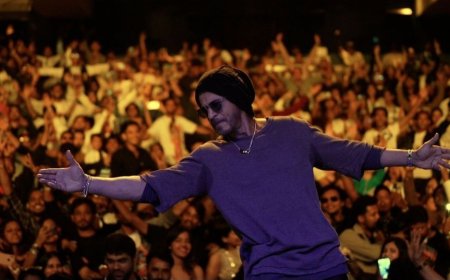Ustad Zakir Hussain Passes Away: A Maestro Who Redefined the Tabla

The world of Indian classical music mourns the loss of Ustad Zakir Hussain (1951–2024), an iconic figure who transformed the tabla from a modest instrument into a global symbol of peace and humanity. He passed away on Monday after a brief illness in San Francisco, California.
Renowned for his exceptional speed, dexterity, and creativity, Hussain mesmerized audiences across cultures. His music embodied the syncretic soul of India, influenced by a childhood filled with daily odes to Mother Saraswati, verses of the Quran, and hymns from the Bible. His artistry went beyond rhythm, carving stories out of percussive sounds that buzzed with spontaneity and natural flow.
A recipient of the Padma Vibhushan, Hussain left an indelible mark on every genre he touched. “The Padma Vibhushan would impress the purists, enthrall the seekers of fusion, and handhold the fans of Bollywood music into his creative space with equal felicity.” Earlier this year, at the pinnacle of his creative genius, he won three Grammy Awards in one night, reaffirming his global stature.
Born in 1951 in Mumbai to Ustad Alla Rakha, the tabla legend who had previously accompanied Pandit Ravi Shankar, Hussain’s journey with the tabla began at the age of three. His upbringing reflected a rich confluence of cultures, and by his teenage years, the tabla had become an extension of his personality. "After watching him play, one couldn’t see playing tabla as a chore in classical music." While his brothers, Taufiq and Fazal, are also acclaimed percussionists, Zakir Hussain elevated his father’s legacy, adding a touch of showmanship to the rich traditions of the Punjab gharana.
At just 12, Hussain gave his first professional performance and, by 19, was teaching at the University of Washington. His musical explorations led him to join Ustad Ali Akbar Khan’s music college in San Francisco, where he met his wife, Antonia Minnecola.
His career was marked by groundbreaking collaborations. In 1973, he co-founded Shakti with English guitarist John McLaughlin, violinist L. Shankar, and percussionist T.H. Vinayakram, blending Indian classical traditions with Western jazz. The band’s reimagined lineup won the Grammy for Best Global Music this year.
Hussain’s collaborative spirit extended to icons like Irish singer Van Morrison, American percussionist Mickey Hart, and Latin jazz legend Giovanni Hidalgo. Even as he experimented with electronic music during the Asian Underground movement of the 1990s, he preserved the tabla’s acoustic essence. His partnership with Indian legends like Pandit Shiv Kumar Sharma, Hari Prasad Chaurasia, and Ustad Sultan Khan resulted in jugalbandis that began with playful banter before evolving into meditative masterpieces.
Hussain also contributed to cinema, composing scores for films like Mr. and Mrs. Iyer and Parzania and lending his musical genius to international productions such as Apocalypse Now. As a young artist, he even dabbled in acting, appearing in films like Heat and Dust. However, he achieved iconic status among the masses with a tea advertisement that paired his tabla artistry with the immortal tagline, “Wah Taj!”
Even as he scaled unprecedented heights, fame never diminished his humility, nor did age dampen his curiosity. For Hussain, music was an unending journey. As he famously remarked, “I haven’t played good enough to quit.”
The world bids farewell to a maestro who redefined the tabla, making it not just a rhythmic instrument but a melodic voice for global harmony. Ustad Zakir Hussain’s legacy will continue to inspire generations of musicians and music lovers.
What's Your Reaction?


























